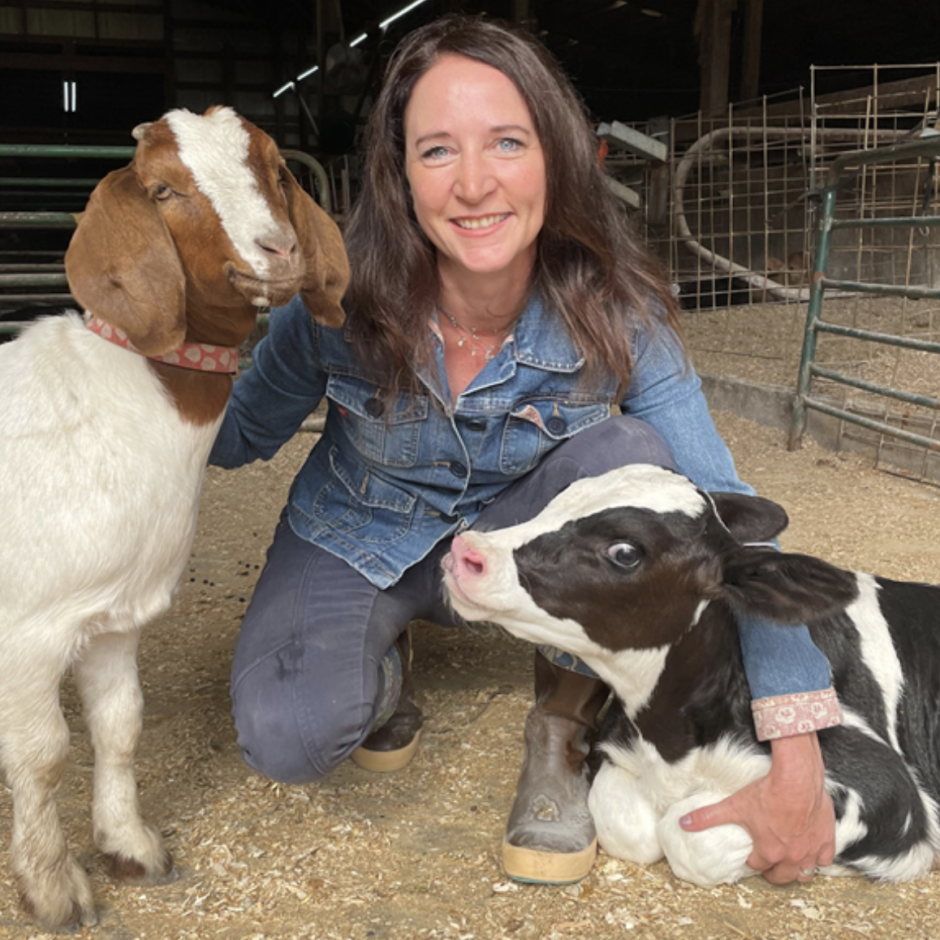
Amber Itle
Washington State Veterinarian at the State Department of Agriculture
What got you interested in the field of animal welfare?
Growing up on my family’s fourth generation dairy farm has always uniquely informed my perspective as I understood the gap between the producer and consumer expectations of animal welfare from an early age. I got to milk the cows, feed the calves, process the products and also help with home delivery services that connected the consumer values with how we raised our animals. After working as a livestock/dairy veterinarian for 5 years, I began to question the disparity between veterinary medicine approaches in companion vs food animal species. I became increasingly concerned that decision making based exclusively on health measures, economics and productivity had a negative impact on farm animal welfare. Routine practices on farms such as disbudding and castration excluded pain management, culling/euthanasia decisions often came too late and disease prevalence on farms remained high despite optimising nutrition. While still in veterinary practice, I joined the UBC Animal Welfare Master’s program. The entire experience changed my perspective, helped me recognize my own intrinsic biases and provided me with a more holistic framework for problem solving.
How has your research/work helped to improve animal welfare?
I have worked as a producer, a private veterinarian, a livestock market veterinarian, a regulatory field veterinarian, and a foreign animal disease diagnostician. Now as the WA State Veterinarian, my position exists at the intersection of these roles, uniquely positioned at the juncture of producers, practitioners, and consumers in communities statewide. My role is to develop and maintain relationships with these different community members to protect animal health and welfare while maintaining a safe and reliable food supply for citizens across the state. I realised that in my day-to-day work in private practice, I measured success in terms of health outcomes. In my job as a regulatory official, I am able to measure success by influencing science-based animal welfare policy that is good for animals and consumers alike.
What do you hope to do moving forward?
As the chair of the National Assembly of State Animal Health Officials Animal welfare committee, I hope to help develop state and national animal welfare standards and policies (like codes of practice), lead efforts to support research initiatives to expand tools available for humane euthanasia during a disease outbreak, and work with our professional livestock producers and industry groups to proactively initiate impactful policy and subsequent changes on farms to improve welfare. Moving forward, I am working hard to integrate the ‘One Welfare’ conceptual framework that includes overlapping constructs of animal health, public health and environmental health through a systems based lens. As State Animal Health officials, we execute response efforts and to inform policy decisions that impact our communities. We all know that by only thinking about one element of this conceptual framework, we may miss the importance of the interrelatedness of the work we all do, making decisions that negatively impact another. Moving forward, I hope to work collaboratively with cross-agency, academic, and industry partners to address animal welfare concerns including antimicrobial resistance, producer mental health and standards of care to better inform science-based policy positively impacts animal welfare in Washington and across the United States.